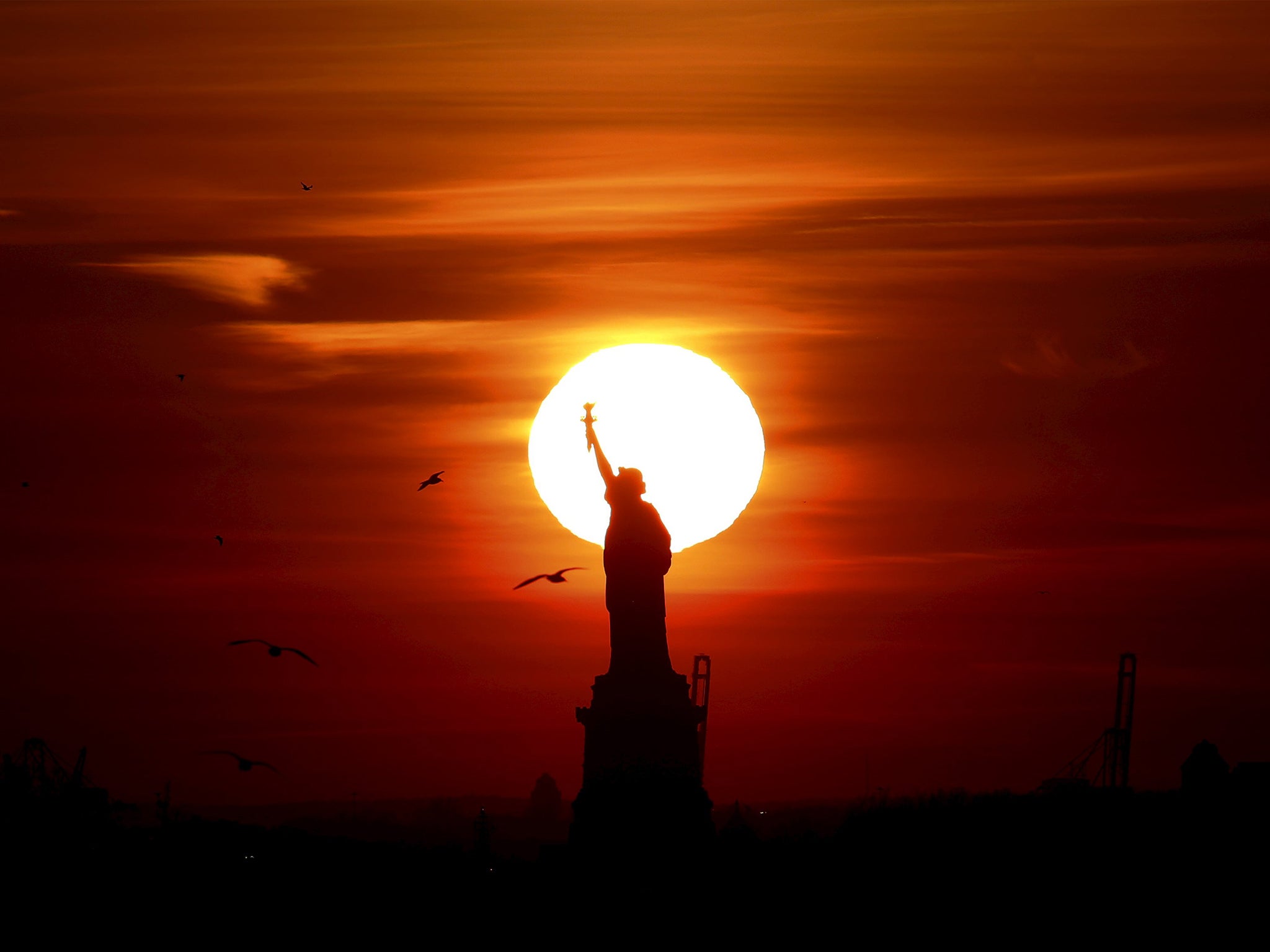Climate change could destroy Statue of Liberty, Venice and many other parts of the world's heritage, UN report warns
Many of the world’s most important sites are already being hit by the effects of global warming – and it could lead to their destruction

Your support helps us to tell the story
From reproductive rights to climate change to Big Tech, The Independent is on the ground when the story is developing. Whether it's investigating the financials of Elon Musk's pro-Trump PAC or producing our latest documentary, 'The A Word', which shines a light on the American women fighting for reproductive rights, we know how important it is to parse out the facts from the messaging.
At such a critical moment in US history, we need reporters on the ground. Your donation allows us to keep sending journalists to speak to both sides of the story.
The Independent is trusted by Americans across the entire political spectrum. And unlike many other quality news outlets, we choose not to lock Americans out of our reporting and analysis with paywalls. We believe quality journalism should be available to everyone, paid for by those who can afford it.
Your support makes all the difference.The Statue of Liberty and many of the world’s most important heritage sites could soon be destroyed by global warming, the UN has warned.
Historic sites including Orkney and the world’s most important coral reefs are already feeling the effects of the increasing temperatures and climate disruption that is coming with global warming. But that same trend could completely destroy them and other parts of the world’s heritage, according to a new report.
The danger shows the “urgent and clear” need to address climbing temperatures to protect many parts of the world’s heritage, according to the report, which was compiled by the Union of Concerned Scientists (UCS), UN heritage body Unesco and the United Nations Environment Programme (UNEP).
The study took in 31 natural and cultural World Heritage sites, spread across 29 countries. It looked at the ways that the effects of climate change – including intense weather and damage to animal’s habitats – would effect them in the future.
Climate change will - or is already - exacerbating problems faced by some of the world's most famous and popular heritage sites, such as the Galapagos Islands, which helped Charles Darwin form his theory of evolution, the study found.
Threats to the unique wildlife caused by 205,000 visitors a year, invasive species and illegal fishing are now being joined by rising seas, warming and more acidic oceans and extreme weather.
In the UK, at Stonehenge, warmer winters are likely to boost populations of burrowing animals that could disturb archaeological deposits and destabilise stonework.
Hotter drier summers could increase visitor numbers and change the plant species which stabilise the chalk downlands, causing more soil erosion, while Stonehenge, Avebury and Silbury Hill face increased rainfall and flash floods.
More severe problems threaten the Heart of Neolithic Orkney World Heritage site, where many archaeological sites are on the coast due to the importance of the sea in Stone Age life, and at least half are under threat from coastal erosion
Five-thousand-year-old Skara Brae, the best-preserved Stone Age dwelling complex in Western Europe with houses and stone furniture, is the most high profile site at risk of eventual loss of coastal erosion, the study said.
Lead author of the report and deputy director of the climate and energy programme at UCS, Adam Markham, said: "Orkney and the whole of Scotland is the poster child for eroding archaeology sites.
"There are thousands of them and many of them are being lost to coastal erosion and storms.
"If sea level rise and storms get worse because of global warming then we are going to be losing huge amounts of British heritage directly into the sea," he warned.
Other sites around the world that are at risk from coastal erosion include Easter Island, with its famous head statues, many of which are situated close to the sea, he said.
Elsewhere sites which bring in important tourism revenue could be particularly badly hit, such as Uganda's Bwindi Impenetrable National Park where rising temperatures could affect the habitat of endangered mountain gorillas.
Mr Markham said: "The report is representative of the kind of threats these iconic places are experiencing, some are in direct and immediate danger.
"At every one of these sites we can see the impacts of climate change already. Not in every place is it threatening it yet but it will threaten it in the future."
New York's Statue of Liberty was badly hit by Hurricane Sandy, with £68 million given for repairs and protection to the area, while more intense hurricanes are expected with climate change and sea level rises likely to cause more significant storm surges.
And Venice, with its extraordinary Byzantine, gothic, renaissance and baroque architecture, is under immediate threat from rising sea levels and work to protect it from flooding has cost £4 billion, the report said.
Mechtild Rossler, director of Unesco's World Heritage Centre, said: "Globally, we need to better understand, monitor and address climate change threats to World Heritage sites.
"As the report's findings underscore, achieving the Paris Agreement's goal of limiting global temperature rise to a level well below 2C is vitally important to protecting our world heritage for current and future generations."
Additional reporting by agencies
Join our commenting forum
Join thought-provoking conversations, follow other Independent readers and see their replies
Comments